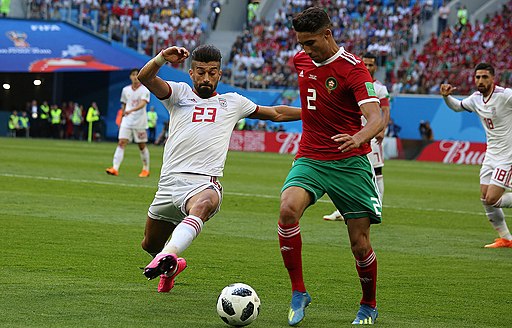Climate Change, and subsequent biodiversity collapse, is the greatest challenge humanity currently faces. It is all-encompassing; impacting every facet of our everyday lives, from the food we can grow and eat, to the shelters we live in, to the business we can do. When discussing how to combat climate change, the role of sports should garner greater consideration.
Unlike other business sectors, sports have almost universal appeal regardless of culture, creed, gender, or ethnicity. Sports also produce passionate fan groups and tight-knight communities that live for their favorite team or player. This gives sports organizations and athletes wide-ranging influential power over fans which can be used to encourage positive behavioral changes. Moreover, the digital age has helped the sports sector rapidly evolve into a financial superpower.
Viewership of sports is skyrocketing with billions of fans tuning in from across the globe to watch major events like the Tour de France, the World Cups, and the Olympic Games. In the US, the most watched television programs year after year have been NFL games. Increased viewership has led to increased revenue across the sector. According to Statista, in 2022 global sports generated over $500 billion in revenue. This number is predicted to rise to $700 billion by 2026.
Increasing environmental awareness
Encouragingly, we are starting to see the sports industry invest some of its financial and emotional capital in climate and energy initiatives. Major sports organizations like FIFA, the IOC, and the NBA have all signed the United Nations Sports for Climate Action Framework which commits signatories to halve sports-related emissions by 2030 and achieve net-zero emissions by 2040. The IOC has gone a step further with its ambitious Olympic Forest project. The project aims to plant 590,000 native trees across Mali and Senegal and forms part of the Great Green Wall project trying to green the edge of the Sahara Desert and prevent further desertification.
The IOC hopes that this contribution will help offset emissions, improve the degraded landscape of the region, and provide food sources to local communities. They are working with Tree Aid, an organization helping them select native and resilient trees based on community needs. Fourteen thousand trees will be used for local agroforestry purposes. The project is only one element of the IOC’s wider strategy to address climate change. The Olympic organizer also hopes to cut 30% of its emissions by 2024 and 50% by 2030, with the end goal of becoming “climate positive”.
In the US the Green Operation and Advanced Leadership (GOAL) Sustainability Platform was brought into existence just recently. GOAL is a sustainability program for stadiums, arenas, convention centers, and public venues founded by members of major sports leagues and entertainment venues. Its stated mission is to fight for social impact, climate action, and responsible change. GOAL, whose members include Citi Field, the Miami Heat, Wrigley Field, and Fenway Sports Group, uses a sophisticated data analysis tool to compare data points between venues and push for more sustainable venue and transport policies.
There is a growing understanding in North American sports that mixed-use venues like stadiums and arenas need to become more environmentally sustainable. This has altered the way sports organizations look at transportation. According to a recent Sports Business Journal article, the Seattle Kraken and Seattle Storm subsidize public transportation to all venue events. Collaborating with Ticketmaster and Transit GO, they send discount transit passes equal to the number of tickets purchased by event-going fans. The Phoenix Suns NBA franchise has tickets that double as light rail passes, and the New York Mets have now hired transportation strategists to improve the travel experience on game day and in their stadium’s neighborhood.
On a smaller scale, the United Soccer League club Oakland Roots committed to being climate positive by 2022. They have worked to not only reduce their emissions but to “remove additional carbon dioxide from the atmosphere that the organization emits.” They collaborated with the Sustainability Consulting Group to evaluate their energy use, the waste they create, their travel strategies, and fan-related emissions. Critically, they do much of their environmental work locally, focusing on improvements in the East Bay community where they plant trees, and help clean the air and water. They also recognize that carbon offsets are an important immediate solution, but not a long-term solution to carbon emissions.
Sports must become a force for positive change
Similar climate projects, plans, and initiatives are popping up across the sports sector. Some are as small as highlighting the climate issue on a captain’s armband, others are large projects involving multiple stakeholders on various continents. But despite the promising steps that are being taken, sports are not yet capitalizing on their position in the marketplace as a true force for positive change. In soccer, the world’s most popular sport, many of the largest clubs are still sponsored by high-emissions airlines, cryptocurrencies, plastic producers, and large banks that invest heavily in fossil fuels. Moreover, most teams in all professional sports continue to travel by chartered jet to away games, and most sports organizations are still seeking to expand, playing more games on more continents for more money. Historian and author David Goldblatt estimates that sports are responsible for 300-350 million tCO2e per year.
Sports suffer from a disjointed approach to environmental sustainability. To further improve the sector’s commitment to fighting climate change, a reevaluation of business models needs to take place. Holistic, purpose-driven strategies that aim to minimize each organization’s environmental impact must be adopted. Furthermore, environmental sustainability must become a key factor in all decision-making processes in the sports industry, with a strict view of limiting greenhouse gas emitting activities to the bare minimum. Finally, the fractured approach to sustainability must be replaced by a unified front, with entire leagues – with the backing of all their teams and executives – and organizing associations pushing for environmentally sustainable development which will protect sports in the long run. Most importantly, the big brands need to commit to the cause. Imagine the impact of FC Barcelona, the Dallas Cowboys, the Indian Cricket team, and the Los Angeles Lakers all committing to climate neutrality. Or even better, imagine Leo Messi, LeBron James, and Serena Williams speaking out about the effects of sports on the climate and reducing private jet travel.
Powerful influencers
Sports’ influence has the opportunity to create real change. A recent Unilever study shows that influencers – in this case, athletes – have “the single biggest impact on people’s sustainable lifestyle choices today.” But sports organizations and athletes must begin to communicate their sustainability objectives more openly. Transparency about goals, mistakes that have been made, and flaws within the business will help garner further support from fans. There is an understanding that working in an environmentally friendly manner on a large scale can at times be difficult, but communicating mistakes and adjustments to past approaches will earn trust and eat away at potential greenwashing.
Alongside the powerful initiatives that are already taking place in the sports industry, these adjustments could help propel sports forward in the fight against climate change. Loyal fans will likely follow suit, adopting the practices of their on-field heroes and spreading a more positive culture of environmental awareness and practice.
Vitas Carosella is a young professional with a master’s degree in international relations. His focus is on environmental politics and sports diplomacy and development. He currently volunteers with Fossil Free Football, helping to expose the connections between elite-level soccer organizations and the fossil fuel industry. He also works as a political research analyst at London Politica, where he produces reports on international political affairs. Vitas has a background in foreign languages and has coached soccer on multiple continents. He is constantly looking for new impact-driven projects in the sports and environment field. In his free time, he can be found hiking, running, reading, or playing sports.
is a young professional with a master’s degree in international relations. His focus is on environmental politics and sports diplomacy and development. He currently volunteers with Fossil Free Football, helping to expose the connections between elite-level soccer organizations and the fossil fuel industry. He also works as a political research analyst at London Politica, where he produces reports on international political affairs. Vitas has a background in foreign languages and has coached soccer on multiple continents. He is constantly looking for new impact-driven projects in the sports and environment field. In his free time, he can be found hiking, running, reading, or playing sports.
The MAHB Blog is a venture of the Millennium Alliance for Humanity and the Biosphere. Questions should be directed to joan@mahbonline.org
The views and opinions expressed through the MAHB Website are those of the contributing authors and do not necessarily reflect an official position of the MAHB. The MAHB aims to share a range of perspectives and welcomes the discussions that they prompt.
